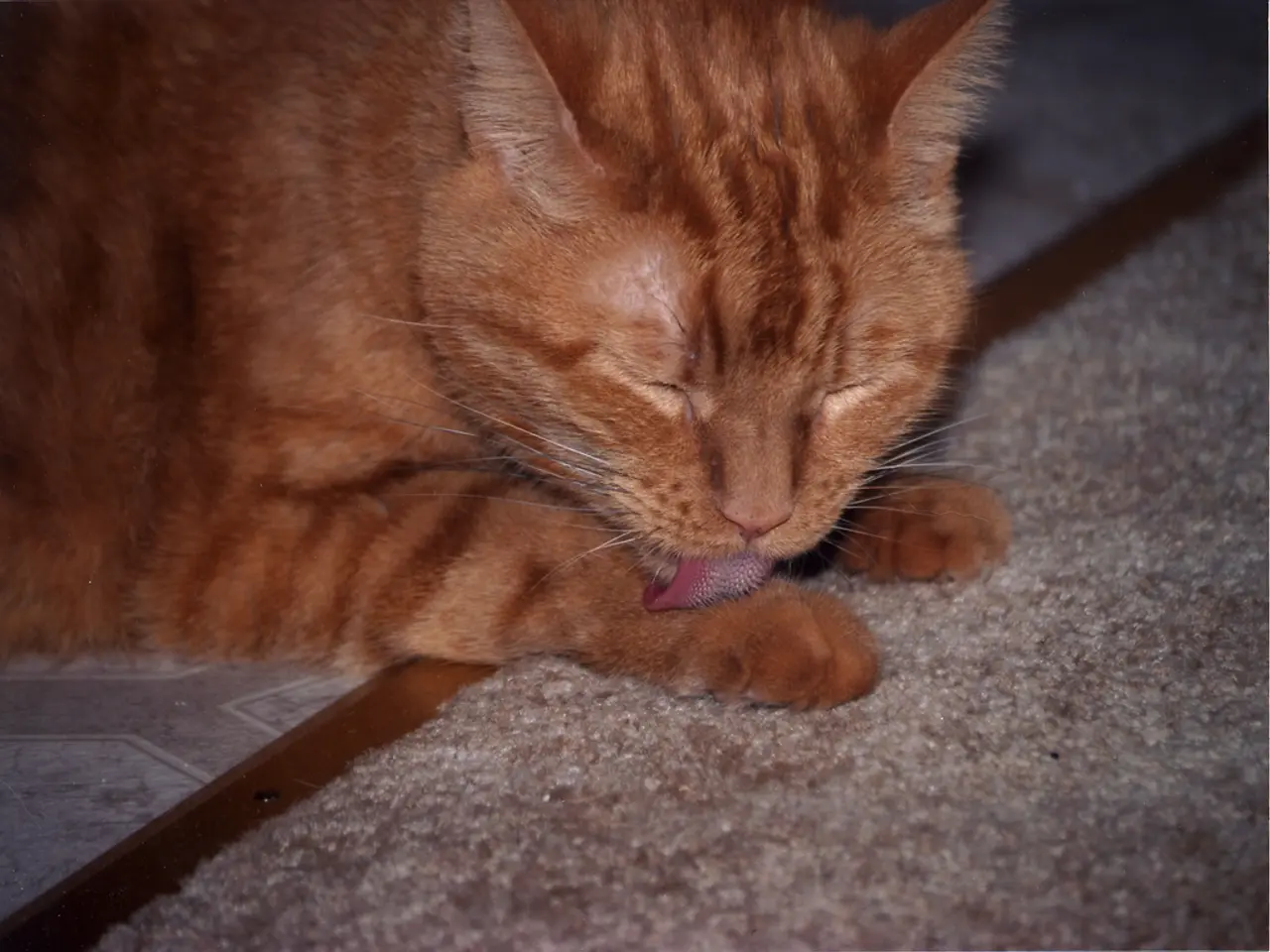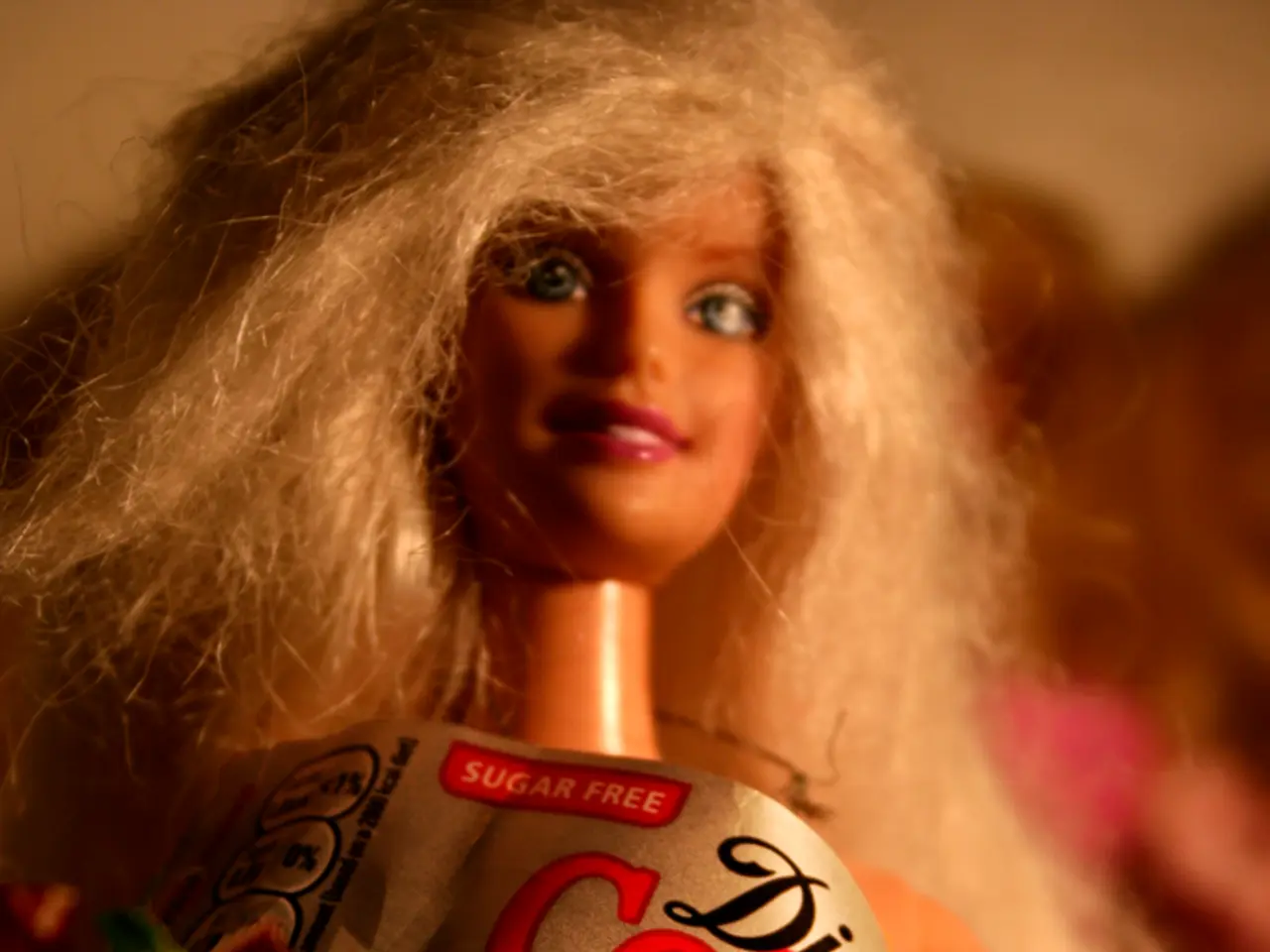Affectionate Scottish Folds, a disputed feline breed, garner acclaim from celebrities such as Taylor Swift
Article Title: Scottish Fold Cats: Understanding Their Unique Traits and Health Concerns
Scottish Fold cats, with their distinctive folded ears, soft coats, and owl-like eyes, are one of the most recognizable cat breeds. However, their unique appearance comes at a cost, as they are prone to several health issues due to a genetic mutation affecting their cartilage.
The distinctive folded ears of Scottish Folds are the result of a mutation in the Fd gene, which impacts cartilage development throughout the body. This mutation often leads to osteochondrodysplasia, a painful bone and cartilage disorder that can cause joint stiffness, deformities, and arthritis, affecting the cats' mobility and quality of life from a young age[1][2]. Cats with two copies of this gene suffer more severely, while those with one copy may develop arthritis later in life.
In addition to joint issues, Scottish Folds are also more likely than other cat breeds to suffer from skeletal abnormalities and abnormal bone growth, contributing to chronic pain and movement difficulties[1]. Even Scottish Folds without folded ears may carry the mutation and have an elevated risk for such problems.
Another common health concern for Scottish Folds is polycystic kidney disease (PKD), where cysts form in the kidneys, gradually leading to kidney failure and affecting their long-term health[1].
The folded ears of Scottish Folds also pose practical health challenges, such as wax build-up, increased risk of infections, and ear mites due to ear canal blockage. Regular ear cleaning and veterinary check-ups are essential to manage these issues[3].
Due to these inherent health risks, organizations such as the International Cat Care and British Small Animal Veterinary Association have raised ethical concerns about breeding Scottish Folds, considering it “unethical” because of the welfare implications resulting from the breed's underlying genetic mutation[1].
Despite these health concerns, Scottish Folds are sweet-natured, devoted, quiet, easygoing, and playful. They require minimal grooming, with brushing once or twice a week being enough to keep their coat in order. Preventative oral care from a young age is also necessary.
However, prospective owners need to be aware of these issues and should seek cats from responsible breeders who conduct health screenings and prioritize the cats’ welfare. Regular vet care, a balanced diet, and tailored environmental support are crucial for managing these health risks[3].
It is not recommended to buy a Scottish Fold due to their high likelihood of developing painful and debilitating joint issues. Scottish Fold kittens will set you back anywhere between $1,000-5,000 due to their rarity. If you decide to purchase a Scottish Fold, you must have the means to pay for their veterinary care and pet insurance.
Scottish Folds typically weigh between 9-13 lb, stand 8-10 inches tall, and measure 14-16 inches long. Their coats can be blue, silver, brown, black, or white, and patterns include tabby, solid, bicolor, or tricolor. Their eyes can be blue, green, teal, copper, gold, or hazel.
While Scottish Folds can be left alone for short periods of time, they do love human company and attention, and longer lengths of time could be stressful for them. Some Scottish Folds may develop separation anxiety if left for too long. Exercise-wise, Scottish Folds have a penchant for snuggling up with their humans on the couch.
Scottish Folds are relatively rare, with only around 50% of kittens born showing the characteristic folded ears. They have a life expectancy of 13-16 years. Unfortunately, many Scottish Folds develop painful joint disease at a young age.
[1] International Cat Care. (n.d.). Scottish Fold. Retrieved from https://cats.org.uk/breeds/scottish-fold
[2] British Small Animal Veterinary Association. (n.d.). Scottish Fold. Retrieved from https://www.bevahq.com/breed-information/scottish-fold
[3] The Cat's Inn. (n.d.). Scottish Fold. Retrieved from https://www.thecatsinn.co.uk/scottish-fold-cats/
- The genetic mutation in Scottish Fold cats, affecting the Fd gene, causes their distinctive folded ears and increases their risk of health issues.
- This mutation often leads to osteochondrodysplasia, a painful bone and cartilage disorder that can cause joint stiffness, deformities, and arthritis.
- Scottish Folds are also more likely to suffer from skeletal abnormalities and abnormal bone growth, contributing to chronic pain and movement difficulties.
- Polycystic kidney disease (PKD) is a common health concern for Scottish Folds, where cysts form in the kidneys, gradually leading to kidney failure.
- Regular ear cleaning and veterinary check-ups are essential to manage the practical health challenges posed by the folded ears of Scottish Folds.
- Organizations such as the International Cat Care and British Small Animal Veterinary Association have raised ethical concerns about breeding Scottish Folds, considering it “unethical” due to the welfare implications.
- Despite these health concerns, Scottish Folds are affectionate, easygoing, and playful cats that require minimal grooming with brushing once or twice a week.
- Prospective owners need to be aware of these issues and should seek cats from responsible breeders who conduct health screenings and prioritize the cats’ welfare.
- Additionally, regular vet care, a balanced diet, and tailored environmental support are crucial for managing the health risks that Scottish Folds face, including chronic diseases and medical conditions.




